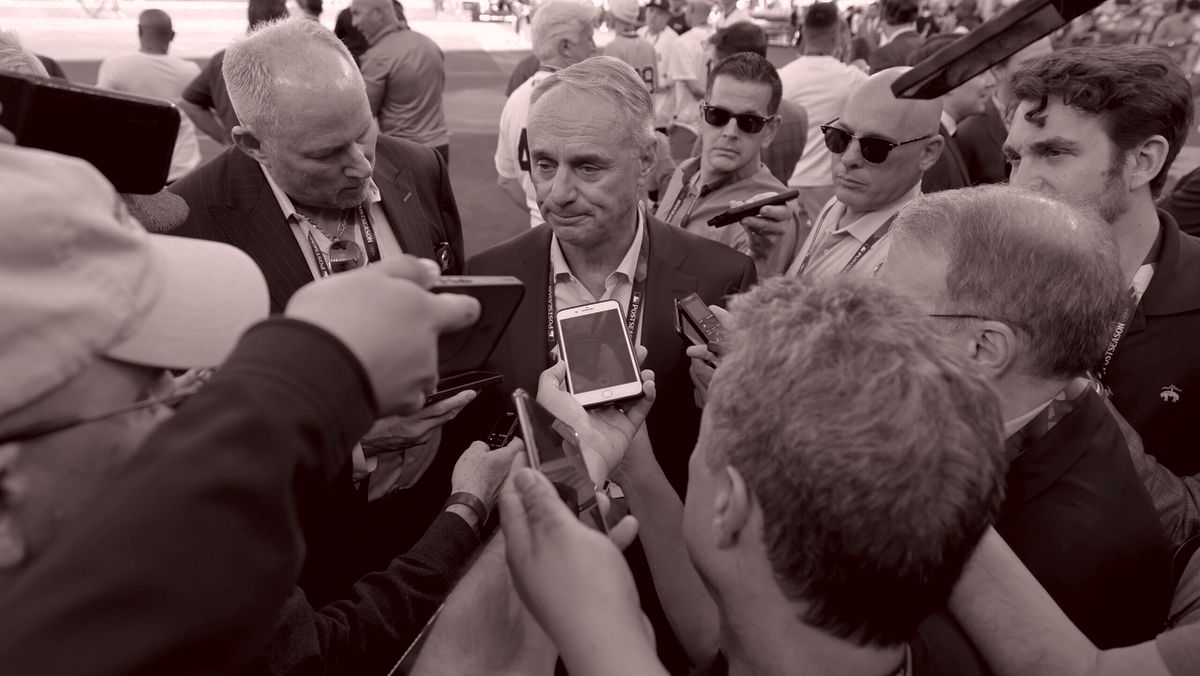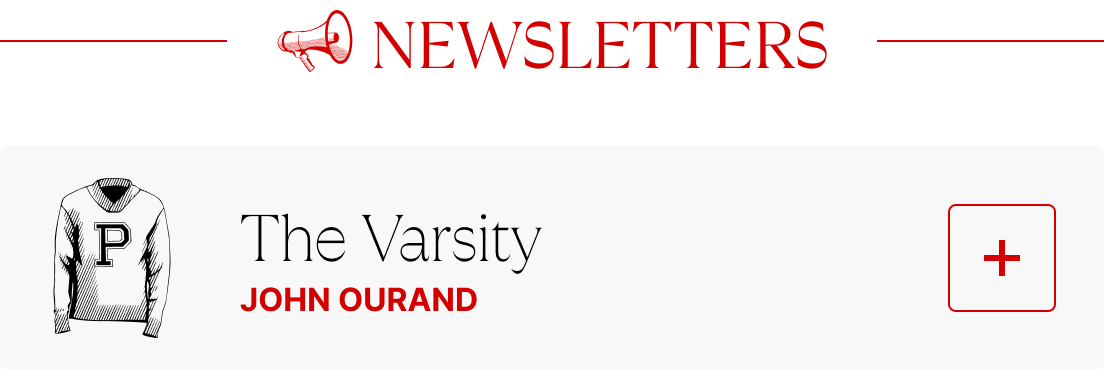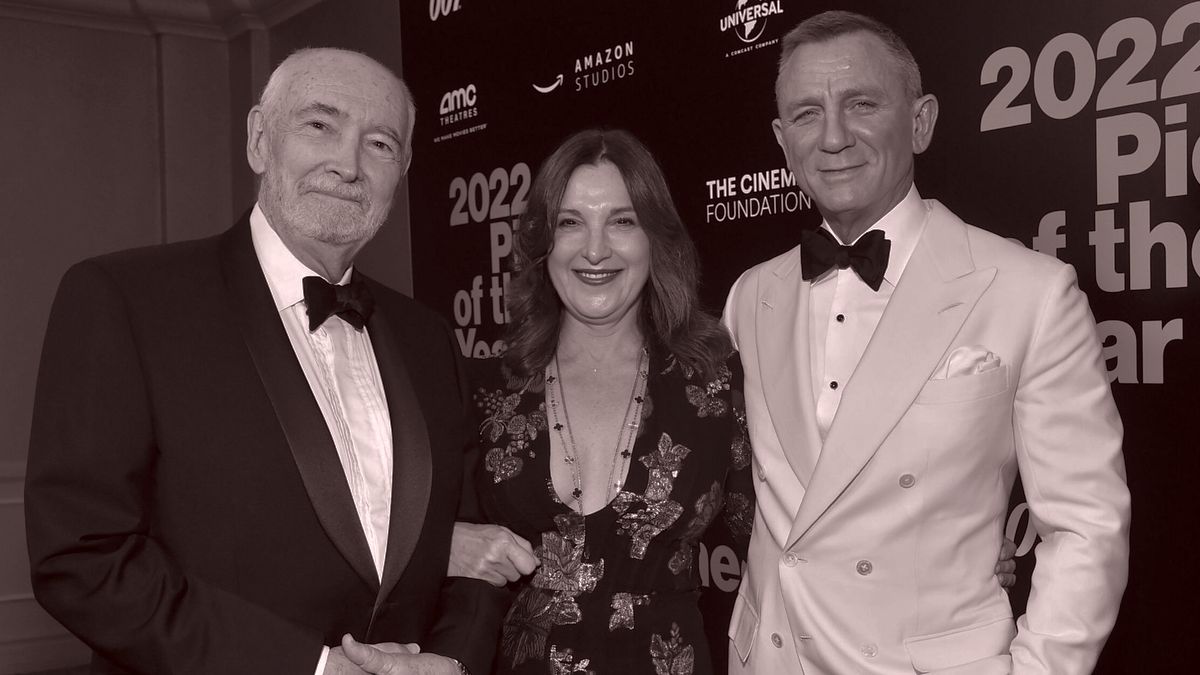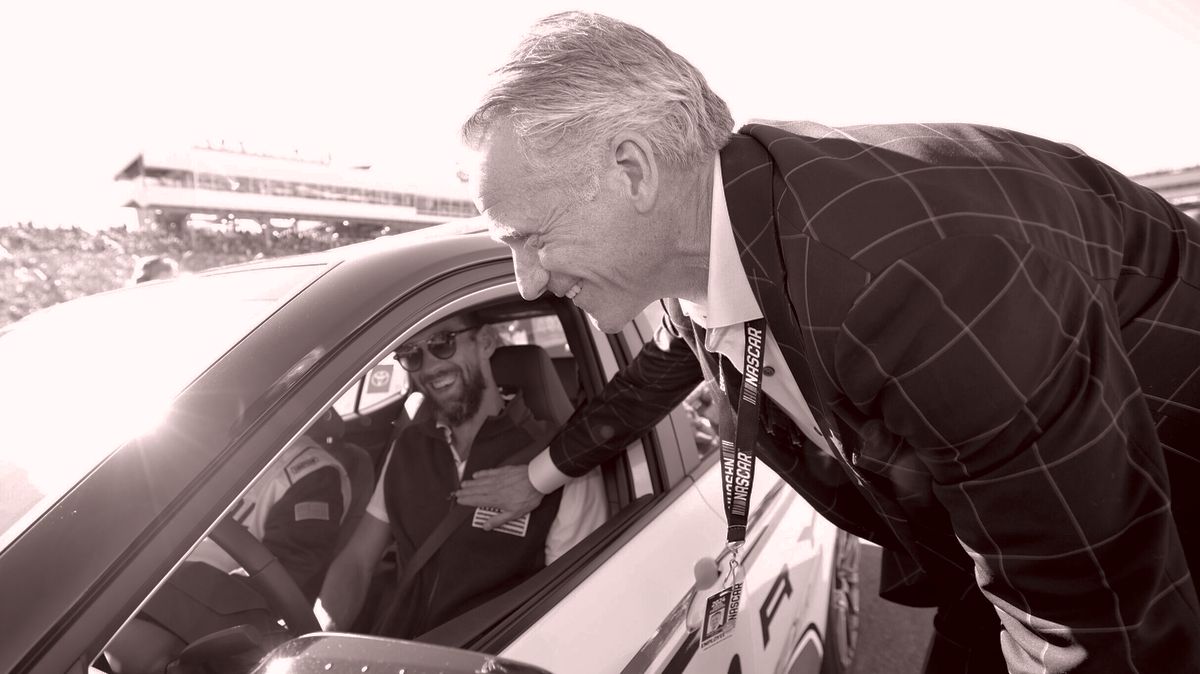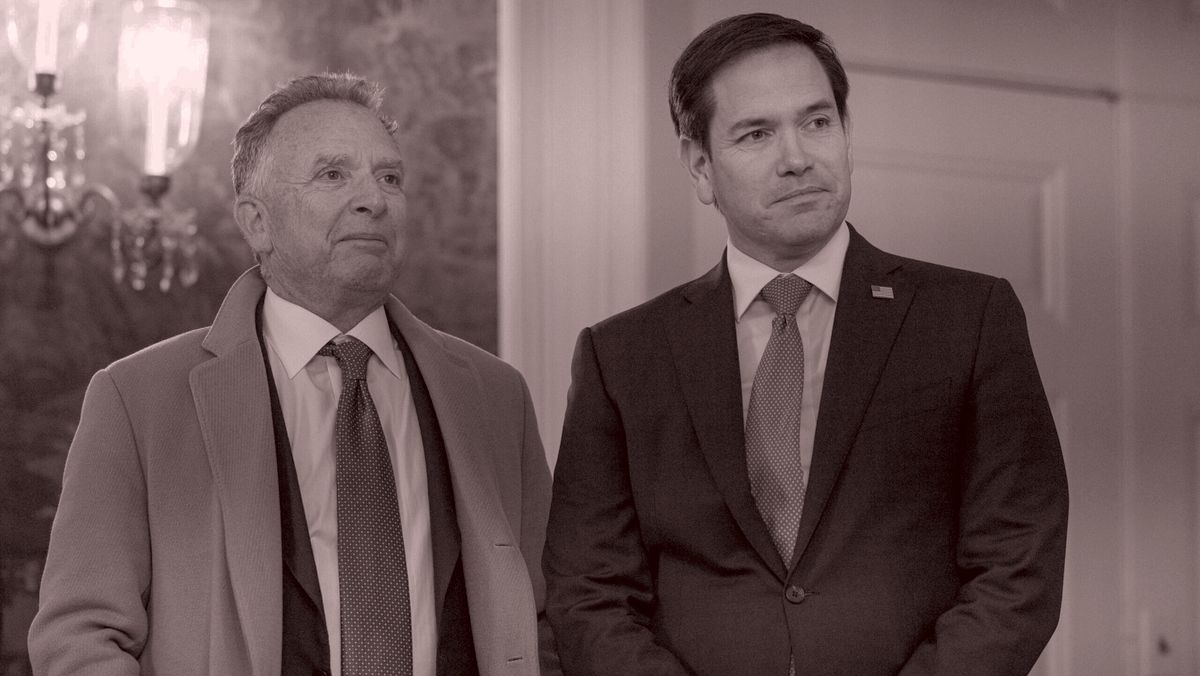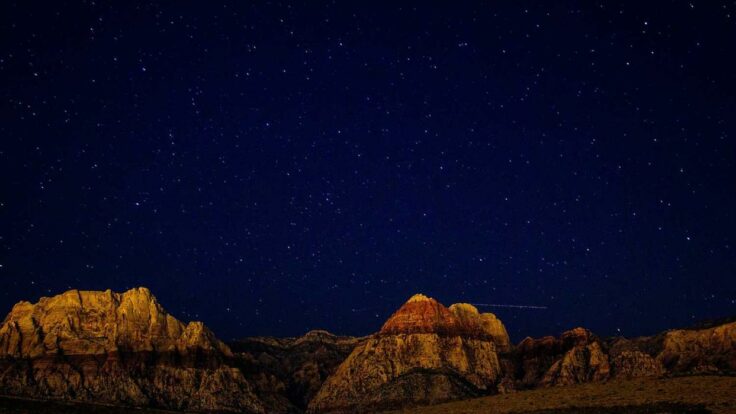Greetings from Los Angeles, and welcome back to In the Room. If
you’re in Miami right now for FII Priority, please ask David Zaslav and Jeff Zucker what they were
talking about poolside at the Faena. (And then, y’know, call me.)
Scoop: New MSNBC president Rebecca Kutler is preparing to announce several big programming changes at the network as early as next week, I’m told. I don’t have all the specifics (yet), but I can tell you who’s poised to benefit and who’s vulnerable. First, as I predicted last
month, Alex Wagner will almost certainly not be returning to the 9 p.m. anchor slot after Rachel Maddow ends her hundred-day-long, five-nights-a-week run at the end of April. Meanwhile, Joy Reid’s contract is up and I’m told her show may also be vulnerable in light of recent ratings struggles.
On a brighter note, Jen Psaki is
poised to take an even higher-profile role at the network with more time on weekdays. As longtime subscribers know, MSNBC has seen Psaki as a potential heir to Maddow since they (and CNN) first started courting her three years ago. I’m also told that Kutler is likely to move Weekend co-hosts Symone Sanders, Alicia Menendez, and
Michael Steele to weekdays, seeking to channel some of the spirit of Fox News’s The Five, which is often the highest-rated show on cable news.
Finally, I’m told that Kutler is currently shopping for a new Washington bureau chief to oversee MSNBC’s D.C. bureau, which will be separate from NBC News once the cable assets are officially spun off later this year. Kutler is also
planning to hire her own team of domestic and international correspondents (make sure your LinkedIn pages are up to date). A network spokesperson declined to comment on all of the above.
In tonight’s issue, news and notes on ESPN’s dramatic split from Major League Baseball, which was decidedly not mutual, despite commissioner Rob Manfred’s spin. Obviously, Jimmy
Pitaro wasn’t going to keep paying more than half a billion dollars a year after Manfred depressed the market with bad media deals. For now, the split will hurt baseball’s popularity, but might it also set the stage for a more consumer-friendly bundle?
Also mentioned in this issue: Jeff Bezos, Elon Musk, David Ellison, Linda Yaccarino, Mike Hopkins,
Nicolle Wallace, Scott Van Pelt, Jeff Shell, Jen Salke, Chris Hayes, Barbara Broccoli, Shohei Ohtani, and many more…
But first…
|
- 🍸 On today’s edition of The Grill Room, Puck’s resident legal expert Eriq Gardner stops by to dissect the wave of MAGA-driven defamation lawsuits targeting Trump’s media adversaries. Most notably, he considers whether the Supreme Court’s landmark 1964 Times v. Sullivan ruling is really helping journalism—hear him out—and calls on media organizations to stop playing defense and file their own lawsuits against those who
impugn their credibility. Follow The Grill Room on Apple, Spotify, or wherever you get your podcasts.
- AP
sues W.H.: On that note, the Associated Press filed a lawsuit against Trump administration officials on Friday over the decision to ban its reporters from events for refusing to use “Gulf of America” terminology. “This targeted attack on the AP’s editorial independence and ability to gather and report the news strikes at the very core of the First Amendment,” the news agency said. Does the AP have a case? “The White House has pretty broad discretion to decide who it speaks to and
even who gets seats during briefings,” Eriq tells me. “The problem is retaliation based on protected free speech. This White House has created an opening for AP to claim a First Amendment issue. It’s really served up the issue on a silver platter.”
- An MSNBC settlement: Meanwhile, Eriq notes that MSNBC has bought a ticket out of its own defamation trial: The network settled this week with Mahendra Amin, an ob-gyn who sued for about $30
million after the network falsely reported that he had overseen “mass hysterectomies” at an immigration detention center in Georgia. Rachel Maddow, Chris Hayes, and Nicolle Wallace were all set to take the witness stand. “It looks like NBC brass watched that CNN trial down in Florida last month and decided they wanted none of that,” Eriq told me today, referring to the $5 million a jury awarded a U.S. Navy veteran after he sued CNN for
defamation over a segment on The Lead With Jake Tapper, which portrayed him as profiting from a “black market” for Afghans looking to flee the Taliban.
- The Yaccarino strong-arm: X C.E.O. Linda Yaccarino is reportedly pressuring major advertisers to
increase spending on X by leveraging Elon Musk’s ties to the White House, per The Wall Street Journal. Yaccarino recently signaled to executives at mega-agency Interpublic that failure to increase their spend might lead the Trump
administration to block or delay their $13 billion merger with Omnicom. Sure sounds like a shakedown to me. Nice deal you got there… would be a shame if anything happened to it. Relatedly, my partner Bill Cohan recently reported that X is turning around, with its debt now trading near par.
- Bezos
takes Bond: Congrats to Jeff Bezos, Mike Hopkins, and Jen Salke for finally wresting creative control of the 007 franchise after years of negotiations with Barbara Broccoli and Michael G. Wilson, the intractable and wildly successful stewards of their late father’s estate. (Skyfall grossed over $1.1 billion worldwide; Daniel Craig’s swan song, No Time to
Die, took in $774 million.) Amazon MGM can now choose who plays 007, who writes and directs the next script, and when the next Bond film goes into production. This was a big incentive for Amazon’s acquisition of MGM three years ago, as my partner Matt Belloni notes in his
latest missive, but stepsiblings Broccoli and Wilson were reluctant—to put it mildly—to relinquish creative control. (“These people are fucking idiots,” is how Broccoli once referred to Amazon executives.) Now the pressure is on Amazon to not fuck it up. Good luck!
|
|
|
MLB and ESPN announced they will part ways at the end of the 2025 season, after
the sports network refused to re-up their current, diluted deal. Now, MLB commissioner Rob Manfred is trying to save face while scrambling to find a new home for America’s pastime.
|
|
|
This week, in what may be remembered as another pivotal regression in Major
League Baseball’s retreat from the zeitgeist, ESPN chairman Jimmy Pitaro told the league that his network would be opting out of its annual $570 million contract at the end of this season. Before ESPN’s letter could even be FedExed to MLB headquarters in Midtown, commissioner Rob Manfred was trying to get ahead of the news and put his own spin on the ball. “We do not think it’s beneficial for us to accept a smaller deal to remain on a shrinking
platform,” Manfred wrote in a memo to his owners that soon somehow made its way into the digital pages of The Athletic—thereby likely putting the final kiss-off on a relationship that has existed for three and a half decades.
Manfred, a former labor lawyer who has been navigating the balkanized sports media landscape, wasn’t quite done. In the extraordinarily chummy and relationships-based world of sports
media, he seemed intent on delivering the message that his league didn’t need Disney’s money and that, despite the cratering of the regional sports network industry, he had plenty of options. “Given that MLB provides strong viewership, valuable demographics, and the exclusive right to cover unique events like the Home Run Derby, ESPN’s demand to reduce rights fees is simply unacceptable. As a result, we have mutually agreed to terminate our agreement,” the league said in a statement.
This framing was a source of great amusement for executives at both ESPN and rival media organizations—including current and possible future league partners—all of whom knew that it wasn’t quite so mutual. The seeds of the MLB-ESPN contretemps will be familiar to the readership of my partner John Ourand, who has been reporting on all this dialectic for years, but if
not, a quick refresher… Baseball, a game popularized by radio and monetized through its tonnage, has been losing some of its media cachet for years amid the growth of the NFL, increase in televised college sports, ascent of the NBA, and proliferation of niche sports. To wit: A decade-plus ago, Manfred and Pitaro negotiated a $750 million a year, eight-year package that ran through 2021. In 2021, of course, they re-upped into the current $570 million per annum deal. (Yes, it’s $570 million, not
$550 million).
But then Manfred went and reset the market by striking substantially cheaper add-on deals, like licensing a package of Friday night games to Apple TV+ for $85 million, in 2022, and Sunday morning games to Roku for $10 million, in 2024. These may have been delightful incremental revenue plays, but they backfired. As The Athletic’s Andrew Marchand noted, the Roku deal is
only netting each team $300,000, “which is less than half the minimum rookie salary of $760,000 for one player.” More importantly, measured against those deals, ESPN’s package—which includes Sunday Night Baseball, the wild card playoffs, and the Home Run Derby—seemed overpriced.
ESPN prides itself on its fiscal responsibility, and has a sophisticated internal pricing model to gauge the estimated
R.O.I. on live rights investments. (As do Amazon and Netflix and others…) Obviously, you can’t anticipate which teams will be hot during the course of an eight-year deal, or whether Shohei will suffer an injury, but there’s a lot they can anticipate about viewership totals and sell-through rates. As CNBC’s Alex Sherman noted on Ourand’s excellent podcast, The Varsity, ESPN ostensibly gets a higher R.O.I. from newfangled leagues, like TGL, than
a banner product such as Sunday Night Baseball.
In any case, they never actually ran the numbers on this because Manfred made it clear from the outset that he wasn’t willing to entertain any offer below the existing rate. But, having surveyed several media executives with a vested interest in that answer, it seems likely the true value is probably a little more than half of what ESPN is currently paying—yes, the MLB deal was worth a pair of NFL
playoff or Christmas Day games. And, of course, any new deal would need to include the sorts of local packages that provide the tonnage that matters most on streaming.
|
Sure, everyone will take a look at the MLB package, but there will
only be a few serious suitors. The league’s other current broadcast partners, Turner and Fox, probably aren’t incentivized to add more baseball to their inventory, given that it won’t bring in any additional affiliate revenue and they’re already calling on these same advertisers. Anyway, their packages expire in a few years and they can renegotiate then.
Will David Ellison and Jeff
Shell kick the tires once CBS is under their control? Probably, but not at the prices Manfred wants. NBC? Maybe, especially since the network already has a lock on Sunday nights via the NFL and its new NBA deal. That leaves Apple, which has Fridays, and Amazon, which already has a toehold in local baseball rights and could conceivably want to add a national game to the package. Yes, they’ve got deep pockets, but they’re also very pragmatic. Would the MLB try to work out
goldilocks deals with a number of these partners, as NASCAR is currently doing, and hope to stairstep its way to a larger overall number? Perhaps that’s the ace up Manfred’s sleeve.
In any event, let’s say one of those media partners does come in with a slightly better offer than the roughly $300 million ESPN probably would have been willing to pay for this. Would it be worth it? As ESPN struggles
to compete with the streamers, the business has sought to convince the leagues that it can deliver an added value its competitors cannot: It is a 24/7, multichannel, multiplatform sports network, and thus a near-constant marketing vehicle for its partners. A tech firm might be willing to pay a little more—we’ll see—but when was the last time you noticed an ambitious marketing campaign for Apple TV+’s Friday Night Baseball, or saw a Scott Van Pelt type reviewing
highlights from around the league on the platform?
Manfred’s new challenge will be stewarding the league toward something that better serves the consumer. After all, baseball’s true existential challenge, beyond the collective second-screen ADHD of modern society, is that, while the NFL and the NBA have gone national, baseball is still fundamentally a local game. Americans will watch almost any
Sunday Night Football game, but most Yankees fans and Red Sox fans and Astros fans (and, and, and…) don’t really give a fig about a Cardinals-Diamondbacks game on a Sunday night in July. The 162-game schedule also renders any single contest inconsequential, alas, no matter the hype. As the games of any given team spread out across more and more channels and streamers, and became harder to find, ESPN at least provided the league’s fans with some semblance of a home
base.
In the end, though, Manfred had an impossible choice. Caving to ESPN would have permanently and fundamentally reset the league’s market in advance of the coming Fox and WBD renegotiations—nasty math that would have infuriated his owners and players alike. Forgoing ESPN, on the other hand, may have put his game further out in the wilderness. And yet, there’s plenty of reason to believe that Manfred can pull himself out of this jam. Indeed, this is a guy who
has introduced all sorts of unwelcome innovations into the game—the pitch clock, the new pick-off rules, expedited extra innings, and is even testing robo-umps in the minor leagues—without wilting. In the process, he’s proved willing and able to defy Major League Baseball’s precious history. Now he’s got to fight for its economic future.
|
|
|
Join Emmy Award-winning journalist Peter Hamby, along with the team of expert journalists at Puck, as they let you
in on the conversations insiders are having across the four corners of power in America: Wall Street, Washington, Silicon Valley, and Hollywood. Presented in partnership with Audacy, new episodes publish daily, Monday through Friday.
|
|
|
A professional-grade rundown on the business of sports from John Ourand, the industry’s preeminent journalist,
covering the leagues, players, agencies, media deals, and the egos fueling it all.
|
|
|
Need help? Review our FAQ page or contact us for assistance. For brand partnerships, email ads@puck.news.
You received this email because you signed up to receive emails from Puck, or as part of your Puck account associated with . To stop receiving this newsletter and/or manage all your email preferences, click here.
|
Puck is published by Heat Media LLC. 107 Greenwich St, New York, NY 10006
|
|
|
|

